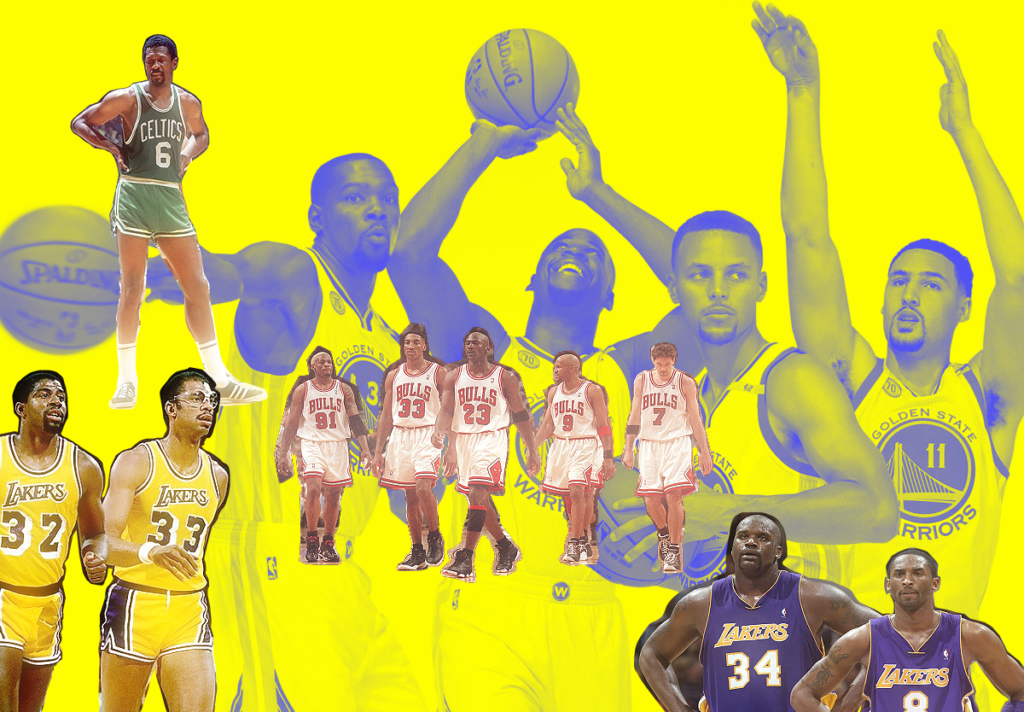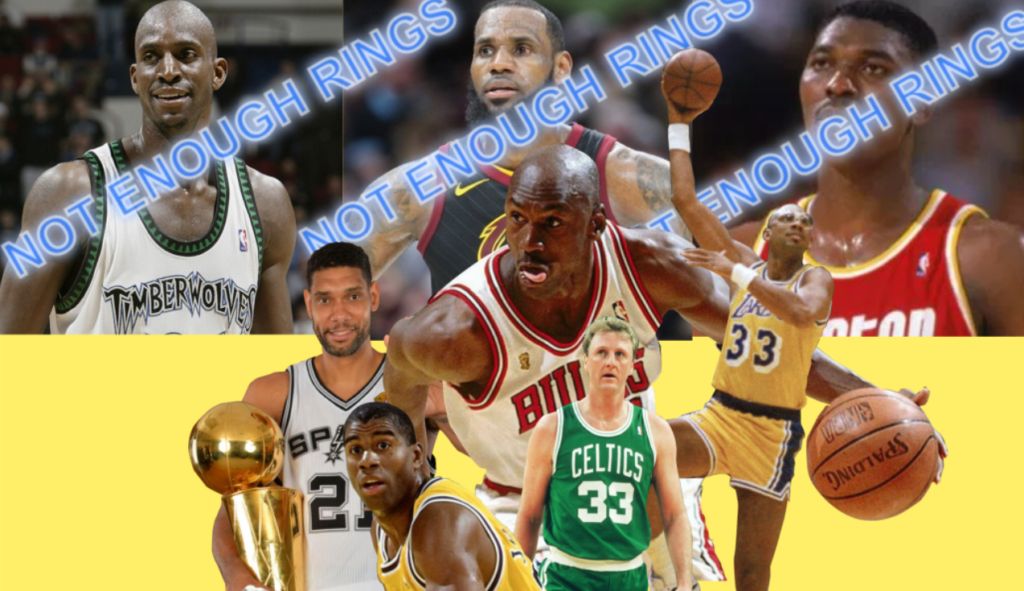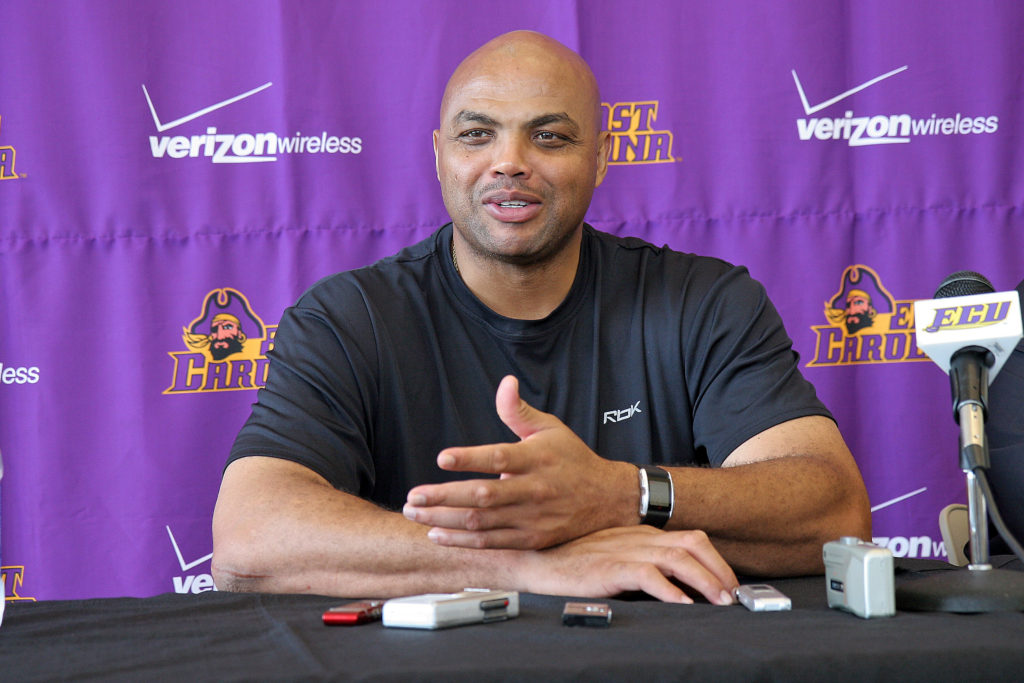Throughout the past 2-3 years – or 24-36 months, if you will – there has been a recent flurry of complaints from NBA fans such as “The Warriors are ruining the NBA” and “Kevin Durant ruined the NBA” and “There is no more parity left because of the Warriors” and “Kevin Love should be a male model” and the like. These comments are due in part to the fact that Warriors have not only one 3 of the last 4 championships, but also due to the fact that they have two of the top 3 players in the league, in their primes, who have each won MVPs over the last 4-5 years. This included a Finals run in which they went 16-1 in the postseason.
Finally, Kevin Durant joined after they already won a record 73 games and made the Finals 2 straight years in a row. Him joining effectively nullified the competition, as the Thunder were eliminated (since they lost him), and the Spurs were nullified (since KD is a top 3 player and probably the best at the small forward position, which is huge since the Spurs’s very own Kawaii Leonard is a small forward), and every other team left in the Western Conference was a tier below those two teams.
So, in the end, we were presented with a scenario in which the Warriors look like they have monopolized the league, that they’ve “ruined” the league.
[the_ad id=”512″]
But this is a gross exaggeration of events. What the Warriors are doing is not new. It’s old. They aren’t the only ones doing it, they’re not the first, and they surely won’t be the last.
To start out:
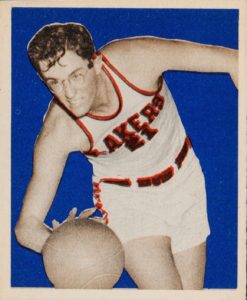
Between 1949-1954, the Minneapolis Lakers won 5 titles (5 out of 6), led by George Mikan. From 1957-1969, the Boston Celtics won 11 titles (11 out of 13, lmao). Then you have the 70s, the only era of prolonged parity. (There was actually a huge amount of parity. 8 different teams won in 10 years).
Then in the 80s? I can do it off the top of my head, in order, starting from 1980: Lakers, Celtics, Lakers, 76ers, Celtics, Lakers, Celtics, Lakers, Lakers, Pistons, Pistons (89-90’ season). Boom. 10 years, at least one of the two teams (Celtics and Lakers) made the finals year, and together, the Celtics and Lakers combined for 8 championships from 1980-1989.
Then the 90s(starting from 91)? Read the following out loud.
Bulls, Bulls, Bulls, Rockets, Rockets, Bulls, Bulls, Bulls, Spurs.
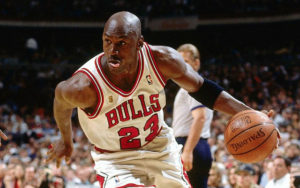
The Bulls won 6 out of 8 finals. Jordan and the Bulls lost only one playoff series together. And here’s the important point that must be mentioned: the idea that the Bulls’s dynasty is different, that they were challenged, and that they were pushed hard, and that they were never a surefire bet to win is a misconception created due to revisionist history.

This can be tackled in several ways. We can focus on stats, and anecdotes from the time
Throughout the 6 years that Bulls won, they faced a grand total of 2 elimination games (games where a team is one loss away from losing). The Warriors faced 2 elimination games this year alone (2018).
The idea that the Bulls were never considered a surefire bet is also a misconception. In the following excerpts from a Sports Illustrated article from 1997 (titled “Are the Bulls so good they’re bad for the NBA?”), you can see where the perception of the Bulls was back when they were winning:
“Does anyone envision a scenario (other than an injury to Jordan) in which the Chicago Bulls—50-7 at week’s end, seven games better than their nearest competitors, the Detroit Pistons—do not breeze to their second straight title and their fifth of this decade?”
This is a particular note that is interesting:
There is none of that now, and the lack of a team strong enough to challenge the Bulls is particularly disheartening for the league. Even when the Boston Celtics were stringing together 11 championships in 13 seasons between 1957 and ’69, there was always a threat in the shadows—Bob Pettit’s St. Louis Hawks or Wilt Chamberlain’s Philadelphia Warriors and 76ers. No one’s lurking this year. Chicago isn’t significantly better than it was last season, yet the gap between the Bulls and everyone else seems wider. Seattle is running in place. Shaquille O’Neal’s move to the Los Angeles Lakers broke up the Magic. All that seems to stand between the Houston Rockets and mediocrity is one
more injury to Charles Barkley.”
Doesn’t this argument sound scarily similar to what others say about the Warriors? That their dominance is problematic because “at least back in the old days, there were y teams that could challenge team x”?
The LA Times article, published in 1989 – “Pistons End a Reign, Cap a Career : Detroit Sweeps Lakers, 105-97”, discussed how the Pistons would carry the mantle and lead the next decade.
With quotes such as:
“As the team of the ’80s, having won five titles in eight trips to the National Basketball Assn. finals, the Lakers have watched the decade fade away–and their championship reign with it.
The next decade will be ushered in by the Detroit Pistons, the self-proclaimed “Bad Boys” who earned their first NBA championship Tuesday night.”
And
“ Torch passing seemed the night’s foremost activity as the Pistons put a stranglehold on the championship trophy that had eluded the franchise for 32 seasons.”
, there seems to be common theme: The transition of power and ring-hoarding from one team, to another. It is accepted, it is natural. This has always been the case with the NBA. It’s not new. The Warriors aren’t any different.
In 2001, very similar sentiments were said about the Lakers. In an October 2001 article published in Time magazine titled “NBA 2001: What Will Happen”, authors Paul Katcher and Mark Coatney nonchalantly start out the article bluntly by saying:
“Herewith, our quick and dirty guide to the new season. Take these predictions to the bank: the Lakers will three-peat, Orlando will be a great vacation spot in June and Shaquille O’Neal will again dominate despite new rules that suggest otherwise.”.
You can easily swap out the words in that article to apply to the current day.
“Herewith, our quick and dirty guide to the new season. Take these predictions to the bank: the Warriors will three-peat, Orlando will be a great vacation spot in June,”
etc. Seriously, here’s the link to the article if you want to read more. http://content.time.com/time/arts/article/0,8599,182088,00.html
And some more excerpts.
“NBA Finals:
Lakers over Magic“.
“Someone will actually debate who is the best player in the NBA, as if it wasn’t abundantly clear that Shaquille O’Neal is without peer.”
During the parade, according to this article published back in 2001 (http://a.espncdn.com/nba/playoffs2001/2001/0618/1215295.html), players, media reporters, etc. were all saying how LA will easily win again next year.
Also, let’s look at their playoff records each year.
| 2000s Lakers | 2010’s Warriors | ||
| Year | Playoff Record | Year | Playoff Record |
| 2000 | 15–8 | 2016 | 15-9 |
| 2001 | 15-1 (swept a 60 win Spurs team) | 2017 | 16-1 (swept a 60 win Spurs team) |
| 2002 | 15-4 | 2018 | 16-5 |
lololol
And lastly, we talk about how Durant “ruined the competition” for the reasons outlined in the opening paragraph. Well, the same can be said for Lebron James’s Miami Heat.

Yes, yes, Lebron “formed” the superteam, while Durant joined a 73-win team. But guess what? Regardless of the formation, the same thing happened: both player transactions nullified the competition.
The Heatles formation drew away Chris Bosh from the Raptors, and Lebron from the Cavs, thus hurting both the Cavs and Raptors, and also nullifying other teams with weaker rosters (such as the MVP-Derrick Rose-led Bulls). Similarly, KD joining the Warriors drew away talent from OKC (which they thought they could make up for by getting Carmelo Anthony and Paul George, lel), and nullified teams like San Antonio and the rest.
So we are left with a loaded team that is set to win multiple rings while being the obvious pick to win the championship. Sounds just like the Lakers Celtics Lakers Bulls Lakers Warriors.
So pray tell, what’s actually different from the Warriors and those other teams?


